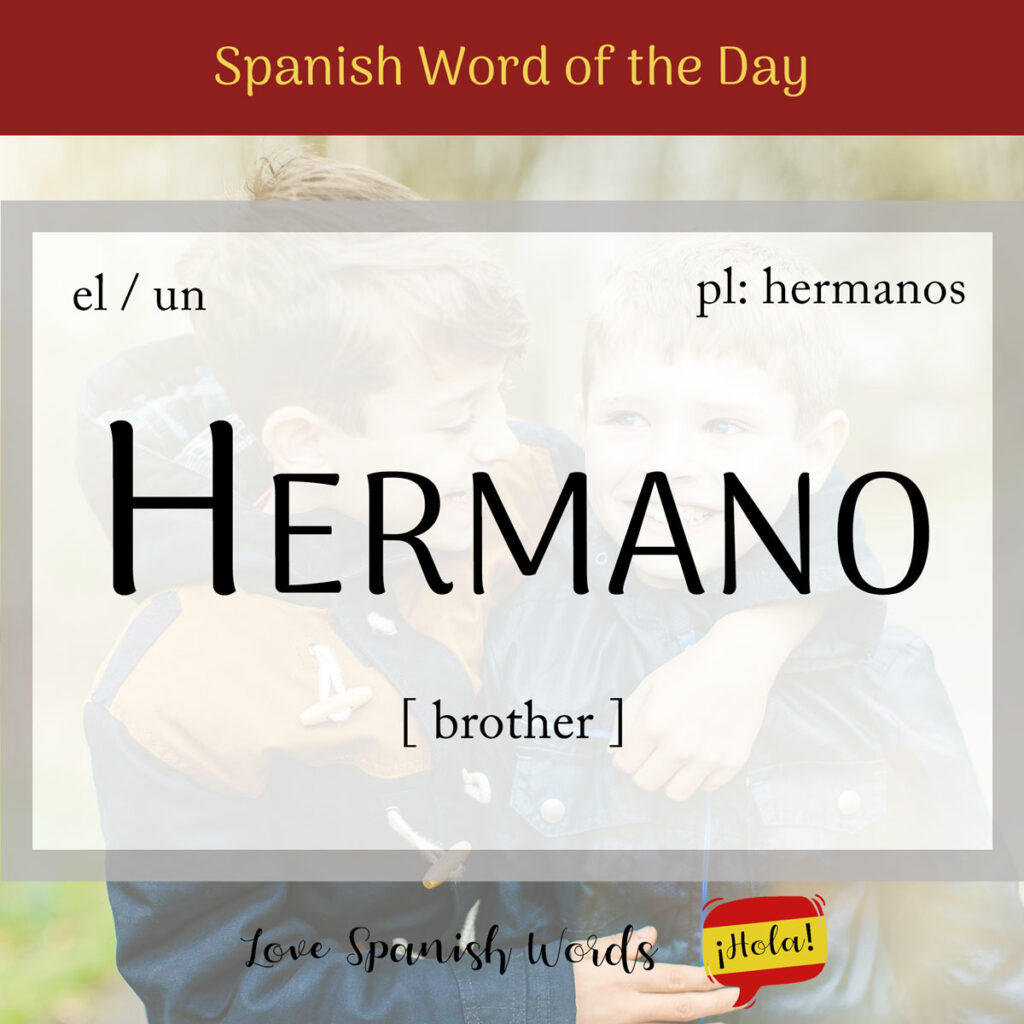When you want to talk about somebody’s brother in Spanish, you will use the word hermano. Hermano comes from the Vulgar Latin germānus meaning brother.
Latin American pronunciation
European pronunciation

Hermano is a masculine noun and takes on the following definite and indefinite articles:
- el hermano = the brother
- los hermanos = the brothers
- un hermano = a brother
- unos hermanos = some brothers
Note that the plural hermanos can refer not only to two or more brothers but also to siblings collectively, which may include one or more sisters. All it takes is one male in the group of siblings, and the term becomes hermanos.
Mis hermanos vendrán a visitarme en dos semanas.
My brothers (or siblings) are coming to visit me in two weeks.

The feminine version of the word is sister, which in Spanish becomes hermana. The plural of hermana is hermanas (sisters).

When talking about a brother in a religious order, a fraternity or a spiritual group (for example, a monk or monja), you would also use the word hermano.
In most parts of Latin America, hermano is also used to mean friend in a familiar sense.
Hermano can be used to talk about one part of a pair of something.
No encuentro el hermano de este guante.
I can’t find the pair to this glove.
There are a few synonyms for hermano, some of which have a very specific meaning in certain countries:
- tato = colloquial word for brother
- ñaño = brother in Argentina, Ecuador and Bolivia
- pipe = brother or good friend in Nicaragua
- hermanastro = step brother

